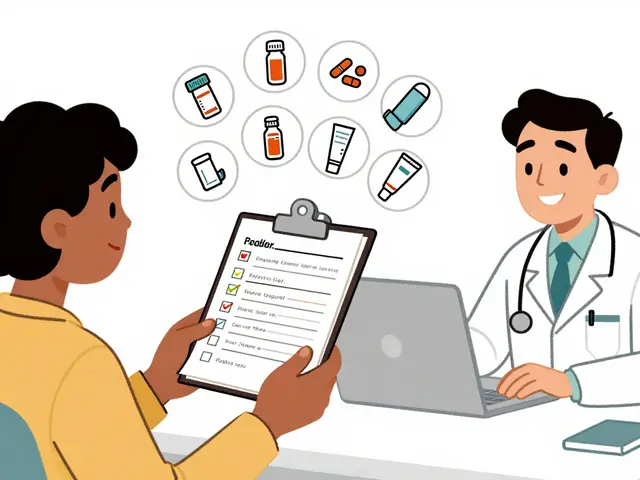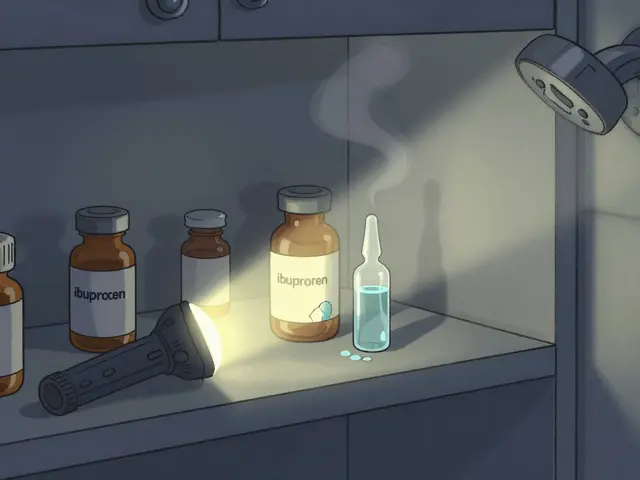Immunosuppression: Practical Guide for Patients and Caregivers
Lowering your immune system can save your life — and raise real risks. Immunosuppression means the body's defence is reduced. Doctors use it after organ transplants and to control autoimmune disease. That reduces rejection and damaging inflammation, but it also makes infections and some cancers more likely.
Causes range from prescribed drugs and chemotherapy to infections like HIV and rare genetic disorders. Even older age, malnutrition, or heavy alcohol use weaken immune responses. Knowing the cause helps shape prevention and monitoring.
How does it work? Many treatments target immune cells or signaling proteins so they stop attacking tissues or transplanted organs. Steroids blunt inflammation fast. Calcineurin inhibitors such as tacrolimus and cyclosporine block T cell activation. Mycophenolate and azathioprine reduce cell growth. Biologic drugs block specific immune molecules like TNF or interleukins.
Watch for warning signs. Fever, a cough that won’t go away, mouth or skin sores, unusual bruising, severe diarrhea, or unexpected weight loss can signal a serious infection. Small infections can escalate quickly when your immune response is low. Call your doctor early — don’t assume symptoms are minor.
Common immunosuppressive drugs
Steroids (prednisone) — fast but broad effects.
Calcineurin inhibitors (tacrolimus, cyclosporine) — used after transplants.
Antimetabolites (mycophenolate, azathioprine) — reduce immune cell growth.
Biologics (adalimumab, infliximab) — target specific immune signals.
Chemotherapy agents — used for cancer and some autoimmune conditions.
Everyday precautions and practical tips
Keep up with blood tests and clinic visits so dosing and side effects are caught early. Get recommended vaccines before starting strong immunosuppression — many live vaccines aren’t safe afterward. Use yearly flu shots and follow updated COVID vaccine guidance. Practice strict hand hygiene, avoid close contact with sick people, and steer clear of high-risk exposures like gardening in bare hands or cleaning bird droppings if you’re severely suppressed.
Tell every clinician and pharmacist about your meds — many drugs interact with immunosuppressants. If you buy medicine online, use licensed pharmacies and require a prescription. Counterfeit or incorrect medicines can cause serious harm.
Travel requires planning: bring a doctor’s letter, extra meds, and know where to get urgent care at your destination. Consider a medical ID noting your condition and medicines.
Know emergency signs: very high fever, severe shortness of breath, sudden confusion, fainting, or uncontrollable bleeding need immediate care. Quick action saves lives when the immune system is down.
Want to read specific drug guides, safe online pharmacy tips, or infection management articles? Check the linked posts under the immunosuppression tag on this site for clear, practical articles written for patients and caregivers.
If you're managing immunosuppression, make a medicine list with doses and reasons, keep it on your phone and a paper copy, and share it with family. Learn which symptoms your team wants reported immediately and which can wait for the next clinic visit. Ask your pharmacist for a drug interaction check every time a new medicine is added. If cost or access is an issue, ask your clinic about patient assistance programs or reputable online pharmacies that require prescriptions.
Stay informed always.

In my recent blog post, I delved into the crucial role of Tacrolimus in pediatric transplant patients. This medication, commonly used as an immunosuppressive drug, helps to prevent organ rejection and ensure a successful transplant process for children. I discussed its efficacy, dosage guidelines, and potential side effects, emphasizing the importance of close monitoring and adjustment by healthcare professionals. Overall, Tacrolimus has proven to be a vital component in improving the quality of life for pediatric transplant recipients.






